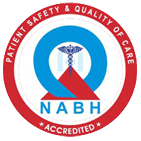FOLLOW THE MISSION HOSPITAL




The goal of artificial disc replacement is to reduce pain and improve mobility in patients with chronic low-back (lumbar) pain. It is a new procedure that is being considered as an alternative to spinal fusion surgery. A risk associated with spinal fusion is accelerated degeneration of discs at adjacent levels of the spine.
Spinal discs are located between the bones or vertebrae of the spine and act as cushions or shock absorbers for the vertebrae. The discs also contribute to the flexibility and motion of the spinal column. The discs consist of two parts:
During the aging process, discs can weaken and develop tears or cracks in the outer portion, resulting in degenerative disc disease. Additionally, the inner portion may bulge out and press against the outer portion, resulting in pain.
The purpose of artificial disc replacement is to replace the worn out disc while also preserving the spine’s motion. The result is reduced back pain and no increased risk of problems developing at an adjacent level of the spine.
The Food and Drug Administration (FDA) recently approved the first artificial disc for use in the United States. The procedure was judged by the FDA to be safe and effective. We do not yet know the long-term results as this study only looked at two years of results. Like any operation there are risks, but the risks were no higher than those of a fusion. Only with long term follow-up will we know for certain how safe and effective this procedure. To date the results are promising if used for the correct indication.
Risks of surgery are dependent on the individual, please discuss your risk level with your surgeon, prior to surgery.
Quit smoking if you smoke, exercise on a regular basis to improve your recovery rate, stop taking any non-essential medications and any herbal remedies which may react with anesthetics or other medications and ask your surgeon all the questions you may have.
There are no special requirements before this type of surgery other than not having anything to eat or drink after midnight. Some physicians require patients to undergo a bowel preparation. Be sure to ask your surgeon for any specific requirements before surgery.
Any activity that increases your level of fitness will make recovery easier. Walking, swimming, and cycling seem to be preferred choices for patients with low back pain.
During surgery, an incision is made on the abdomen and the spine is exposed by moving the abdominal contents out of the way. The disc is removed and any collapse of the disc is restored. Two metal plates are placed into the disc space. A plastic bearing is placed between these discs to allow them to move.
Most patients are out of bed and walking on the evening of surgery. Hospital stay is one to two days. There are some activity restrictions for the first month and then patients can return to normal activities. Be sure to ask your surgeon for a complete list of activity restrictions.
Most patients have returned to regular activities between six and eight weeks after surgery.
For most patients, a self directed walking and stretching program is all the rehabilitation they need during the first four weeks after surgery. After this period, an abdominal strengthening program may help those who were very deconditioned prior to surgery.
Most patients are able to function at home without extra assistance. It may be helpful to have some meals prepared in advance for the first few days after returning home. Patients may take showers after five to seven days, however they can use a shower stool may after first week or two.
Typically, patients are seen at four to six weeks, three months, six months, one year and once a year after the first year. Disc replacement patients will need to be seen every year or two for the life of the disc replacement, similar to patients with hip or knee replacements. This is to ensure the implant is not worn out.
All doctors at the Cleveland Clinic Center for Spine Health are fellowship-trained and board-certified or board-eligible in orthopaedic surgery, medical spine or neurosurgery. In addition, our surgeons have subspecialty training and years of experience in spine surgery. All surgeons performing artificial disc replacements have completed an additional training course.
All Cleveland Clinic staff radiologists are board-certified or board-eligible in radiology or have the international equivalent.
All Cleveland Clinic staff rehabilitation specialists are board-certified or board-eligible in physical medicine and rehabilitation, or have the international equivalent.
All Cleveland Clinic staff pain management specialists are board-certified or board-eligible in pain management or have the international equivalent.
Call 216.444.BACK (2225) or toll free 1.800.223.2273, ext. 42225, Monday through Friday, 8:00 a.m. to 5:00 p.m. (Eastern Standard Time).
We will be following all of our disc replacement patients to assess the long-term outcomes of the procedure and to allow us to compare the different implants as new implants arrive on the market. All disc replacement patients will be asked to complete a simple questionnaire prior to their surgery and at each follow-up visit to assess the results of the surgery. As newer discs are developed we may also participate in FDA trials to assess these implants prior to their approval for widespread release.
As modern medical care grows more complex, patients can feel overwhelmed. The opportunity to consult a recognized authority about a particular diagnosis and treatment can bring peace of mind at an emotionally difficult time. A second opinion may be beneficial when:
A convenient way to obtain a second opinion is e-Cleveland Clinic, a contemporary adaptation of Cleveland Clinic’s 80-year tradition as a nationally designated referral center. An easy-to-use, secure, from-home second opinion service, e-Cleveland Clinic utilizes sophisticated Internet technology to make the skills of some of our specialists available to patients and their physicians, anytime, anywhere.
With e-Cleveland Clinic’s personalized access, no patient need ever to feel unsure or uninformed when faced with what could potentially be one of the most important decisions of their life.

A Unit Of Durgapur Medical Centre Pvt. Ltd.